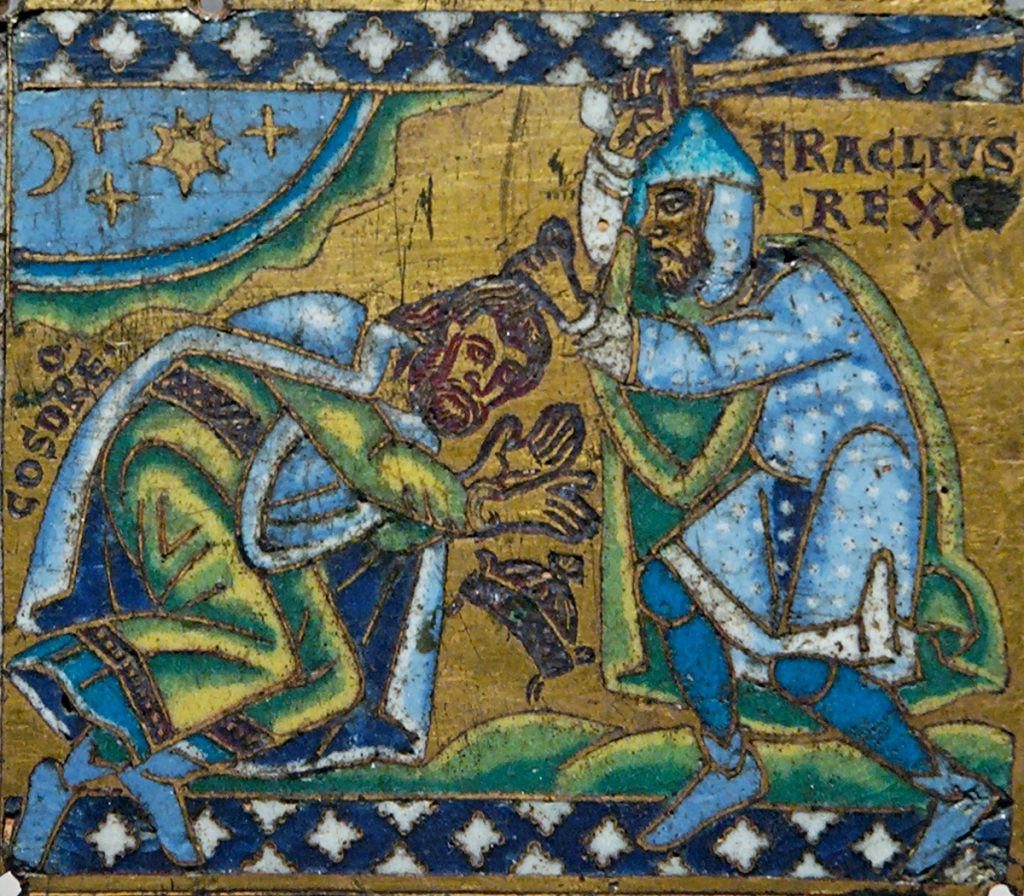There is trouble in Gaza again. Like so many other places around the Middle East, the longest time of sustained peace and prosperity came courtesy of the Romans. Under the Roman Empire, Gaza enjoyed six centuries of peace and prosperity.

Above – This is in Amman. In Roman times it was called Philadelphia. This is the marketplace where merchants met and scholars discussed.
At that time, the inhabitants spoke Greek and the city was a center of culture, known for its sophistication and love of the ancient customs. Probably for that reason, Gaza remained pagan longer than many other cities. It didn’t become Christian until the middle of the fourth Century.
Anyway, the point is that Gaza is not naturally a terrible place. If Hamas would wise up, it could be a nice place to live, as it was when it was under better management for six centuries during the Roman times. Too bad the Romans are no longer in the business. Please see this link for our visit to the Roman city of Jarash.
It reminds me of Monty Python, when the militants ask “What have the Romans ever done for us?”
From “Monty Python’s Life of Brian”

Reg: They’ve bled us white, the bastards. They’ve taken everything we had, not just from us, from our fathers and from our fathers’ fathers.
Stan: And from our fathers’ fathers’ fathers.
Reg: Yes.
Stan: And from our fathers’ fathers’ fathers’ fathers.
Reg: All right, Stan. Don’t labour the point. And what have they ever given us in return?
Xerxes: The aqueduct.
Reg: Oh yeah, yeah they gave us that. Yeah. That’s true.
Masked Activist: And the sanitation!
Stan: Oh yes… sanitation, Reg, you remember what the city used to be like.
Reg: All right, I’ll grant you that the aqueduct and the sanitation are two things that the Romans have done…
Matthias: And the roads…
Reg: (sharply) Well yes obviously the roads… the roads go without saying. But apart from the aqueduct, the sanitation and the roads…
Another Masked Activist: Irrigation…
Other Masked Voices: Medicine… Education… Health…
Reg: Yes… all right, fair enough…
Activist Near Front: And the wine…
Omnes: Oh yes! True!
Francis: Yeah. That’s something we’d really miss if the Romans left, Reg. Masked Activist at Back: Public baths!
Stan: And it’s safe to walk in the streets at night now.
Francis: Yes, they certainly know how to keep order… (general nodding)… let’s face it, they’re the only ones who could in a place like this.
(more general murmurs of agreement)
Reg: All right… all right… but apart from better sanitation and medicine and education and irrigation and public health and roads and a freshwater system and baths and public order… what have the Romans done for us?
Xerxes: Brought peace!
Reg: (very angry, he’s not having a good meeting at all) What!? Oh… (scornfully) Peace, yes… shut up!

BTW – The ancient Middle East was nothing like the modern one. First off, there were almost no Arabs. Around the coast, most people were Greek, at least in language and outlook. In Egypt the upper classes spoke Greek and had a Hellenistic culture, while the common people lived a lot like they had under the pharaohs. Inland in much of what is now Israel, Jordan and Iraq, people spoke Aramaic. This was the language had been a common language of the Persian Empire. There were many nationalities in the region, but Arabs were not prominent among them at this time. Arabs arrived in the 7th Century, when they conquered those places from the Roman (Byzantine) rulers.

The Arab conquest is one of the great historical anomalies. They came just at the right time. The Byzantine Empire had just finished a long and mutually exhausting war with the Persians. Either of these great Empires could have dispatched the Arab raiders at almost any other time, but in these particular decades they were weakened. The Byzantines also had a schism problem. The Christians of Egypt and Syria had a doctrinal dispute with the Christians in Constantinople. In other words, the armies of the prophet came upon a weakened and divided empire. Such is the role of chance in history.
No matter how it happened, it is truly astonishing to anybody who studied ancient history to contemplate the complete transformation and in many cases destruction of the ancient cultures of the region. A thousand years of Greek culture was submerged in a couple of decades. It was a much more complete change than happened in the West, where the lands of the Western Roman Empire still speak languages descended from Latin and still have cultures that can be traced to their ancient heritage. Northern Africa, which is now Libya, Algeria and Tunisia, were very Roman, but that heritage is gone.
I think some of it has to do with the natural environment. Barbarian invasions in places like France or Italy destroyed much of the infrastructure of civilization, but the environment was more forgiving. Ancient cities could grow back as times improved. Roman and Greek cities in the arid places like the Middle East or North Africa were more dependent on the engineering infrastructure. The Arabs invaders in the south and the Germans in the north were all interested in taking the riches of the Roman Empire, but didn’t really understand the complexities of making it work.
When the Roman engineers died off or left their work, and no new ones were trained, the great aqueducts broke down. This didn’t happen all at once, but in the course of some years, the knowledge was lost. In the areas of the German conquests, natural rainfall allowed a fall back. Not so in the more arid regions. That is why you see those Roman cities in the middle of the deserts. The Romans knew how to make these places productive.
